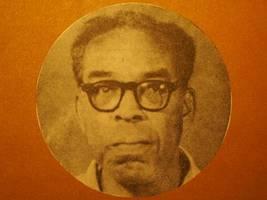Credited as the pioneer of Swahili literature, Muhammed Said Abdulla is the first novelist to produce a blend of local traditional and western literary forms of Swahili novels. He was born in Makunduch village in Zanzibar, part of modern-day Tanzania on April 25, 1918. He received his education from a missionary school and by 1938, he had completed his secondary education.

He worked as an inspector with the Colonial Health Department. After working in that position for a decade, he ventured into journalism and became the editor of the Zanzibari newspaper. Later on, he became the assistant editor of Al-Falaq, Afrika Kwetu and Al-Mahda. He moved on to become the editor of Mkulima, an agriculture magazine.
In 1964, during the revolution that overthrew the Sultan of Zanzibar and his Arab government, Abdulla would be one of the unfortunate victims of the revolution as he lost his family to it. Zanzibar, which was an overseas territory of Oman was ruled by the Arabs who even though were in the minority succeeded in retaining power.
The mainly Afro-Shirazi party which felt underrepresented in parliament despite the winning the pre-independence election in 1963, aligned itself with the left-wing Umma Party and caused an uprising on January 12, 1964. The revolution caused the loss of many lives numbering in the thousands and Said’s family was among the lives lost.

His first novelette, Mzimu wa watu wa kale (Graveyard of the Ancestors) won him the first prize in the East African Literary competition of 1957-58. The novel gained popularity because of a divergent style away from the usual folktale sequence that was common to Swahili literature. The award would go on to boost his career in literature.
The book is the first of an investigative series that is connected to the character, Bwana Msa. It relates to the story of an amateur detective, Msa (an abbreviation of the author’s name) and his friend Najum who have been labelled by critics as African Sherlock Holmes and his Watson respectively, solve the mystery of a corpse with its head chopped off. His subsequent writings follow a similar trail.

In his last novel, Kosa la Bwana Msa (Bwana Msa’s fault, 1989), his popular detective commits an error while investigating a case of bigamy. The protagonist gets married to a rich woman and also secretly marries another one who is younger and prettier. When the first wife discovers her husband’s deceit, she sends two killers to go and kill her husband. Events took a different turn as she is the one who dies instead.
His story, Kisima cha Giningi (The Giningi Well) published in 1969 is also about the mysterious death of the richest woman of a village who was murdered by her greedy uncle while his story Duniana Kuna Watu (There are People in the World, 1973) is also one of such enigmatic pieces about an heiress who sleeps with her father’s driver and marries him in secret, only to find out she and her husband are siblings.

With every new story came a new sophistication in plot. His story Mke Wangu (My Wife) which was published in the volume Kinwa Jumba La Maneno (The Mouth is the Palace of Words) in 1977 by different authors is about a rich and spoiled young man from town who wanted to marry a girl from a village so he could mould her into a character that fits his whim.
To his dismay, he found out the girl, despite being from a village is an intelligent young woman with a strong personality who would not allow herself to be manipulated.
Abdulla’s stories, mostly set in pre-revolution Zanzibar, has been criticized for its overcomplicated plot and unconvincing plots. The plots which are mostly crime or mystery come from the complex relationships that usually bring together his characters who are mostly rich Arab landowners who have their past intertwined with their present.
His ability to write about vapid happenings humorously have contributed to his success in writing novels and essays. His exotic style of investigative plot sets his novels apart from the everyday folktale style of Swahili literature and this has been pointed out by just a few critics.
The rest mainly discuss his work, especially his famous detective Bwana Msa, mainly based on his resemblance to Sherlock Holmes and Augustine Dupin, Edgar Alan Poe’s fictional detective character.
Said’s use of Swahili in his writings shot him to fame and earned him admiration throughout East Africa. His books have been reprinted and widely used as school textbooks. His works have been reprinted in several languages. His legacy remains as the pioneer of Swahili literature.
He died in March 1991.










